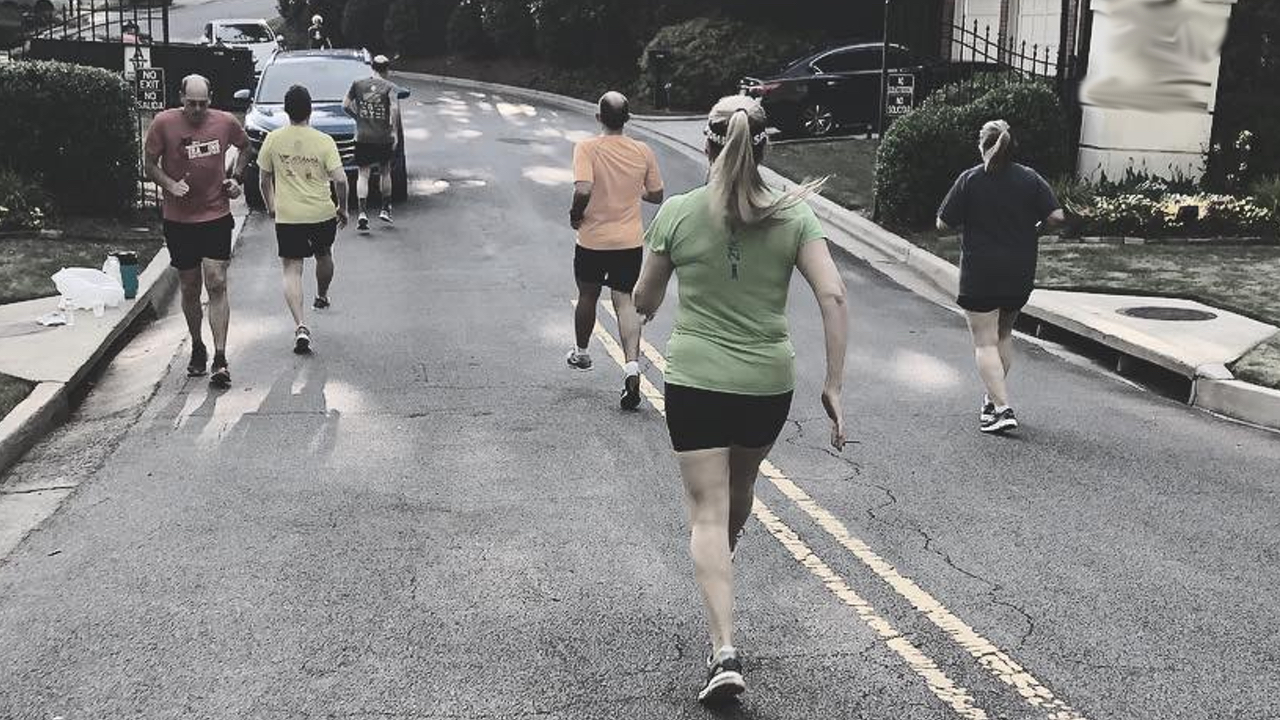First
and Foremost…you’ve got what it takes to be an athlete. The mind is
the athlete: You Can, You Will, You Must! Next, stay hydrated and train
smart. It’s getting hot & humid out that even the chickens will
begin laying hard boiled eggs.
Secondly,
We’ve mentioned this before, but sometimes repetitive information is
necessary so we can understand why we are running and feeling “sluggish”
“unhappy
with our training” “upset about our racing times”, etc. Heat and
humidity affects all of us:
- Your Body is getting adjusted to training – especially in this heat and humidity. Stress of any kind is still stress. During your training period, your heart rate can rise due to an increase of heat and/or humidity – especially if your body is not fully acclimated to our seasonal weather changes. When you’re not acclimated, your heart has to pump more oxygenated blood to the surface of your skin to keep it cool. This means less oxygen is available for the energy conversion process. Less Oxygen indicates your body will go anaerobic sooner than anticipated. Going anaerobic marks the beginning of lactic acid accumulation. (which means you will feel “sluggish” or “tired”). These are factors that cause a rise in your heart rate.
- Day
to day variations of your HR (heart rate) averages 6 BPM (beats per
minute), you can easily
become dehydrated when training and/or racing; research has found that
one’s HR increases 7 BPM for every 1% loss of body weight due to
dehydration. An increase in temperature of 10 degrees can cause one’s HR
to increases by 10 BPM, when you’re endurance running
and/or racing, it can rise even more.
Third,
keep in mind, you want to consume water and electrolytes to replenish
your fluids and don’t rely on soft drinks, juices, etc. And do not
dilute your sports
drinks, they are formulated for a reason to keep you hydrated with the
necessary electrolytes. On a side note: I’ve been using these two
products (they are not sponsors, but the work, feel free to see if they
work for you:
Drip Drop and
Liquid IV). Use what works best for you 🙂
Can running in heat and humidity actually benefit me? Actually,
training in the heat does a better job at increasing your VO2 max than
training in Altitude which also helps you “the athlete” withstand a
wider range of temperatures.
Did you know that your blood volume is affected with heat and humidity?
- Running in heat stimulates red blood cell production
- Running in heat
acclimation helps your body adapt.
- Hot running (over 2 weeks) appears to increase plasma volume, resulting in greater cardiac output & VO2 at
a specific intensity level.
- A study from the University of Oregon in 2010 had trained cyclists do 10 days of heat acclimation — 100 minutes of exercise in the heat each day — and saw a 5% jump in VO2max measured in cool conditions by the end of study (it showed heat made the athletes better). The researchers suggested that athletes could use this type of protocol just like they use altitude training camps, as a short-term intervention to improve performance.
- Your
running benefits from VO2 max. Runners with lower running economy heat
up more than runners with better
economy (same pace). In other words, your running economy is affected
by thermogulatory response (the amount your heat up and how much you
sweat during your running).
- Running economy, not your aerobic fitness, independently alters thermoregulatory responses during treadmill running.

